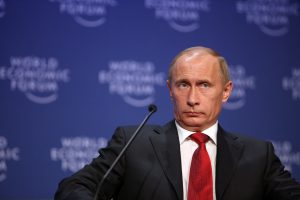They fascinate as much as they alarm. Xi, Putin and Erdogan are stirring the Westerners’ slumber, but far from being as strong as they would have us believe, they are running out of steam and skidding because the sky is darkening over their heads.
With inflation spiralling out of control after hitting 40% last year, a currency that will soon have lost half its value, and purchasing power in free fall, one can wonder how the Turkish president will not lose next year’s presidential and parliamentary elections.
Recep Erdogan continues to impress as he is all over the place, provoking Greece, intervening in Libya and Syria, selling drones to Ukraine and ensuring Azerbaijan’s victory over Armenia. Daesh horrifies, but the “Sultan”, as he is called in Turkey, seems to embody a resurrection of Ottoman power in the service of a desire for Islamic revenge on Christianity. Less than that would be scary already, but the economy is not his only weakness.
The Turkish president also arouses the mistrust of the whole world, that of Vladimir Putin who did not appreciate his military support to Ukraine; that of the Atlantic Alliance of which Turkey has been a member since 1952 and which did not like at all that he bought new weapons from Russia; that of the European Union, which regrets having considered opening its doors to his country; that of the Arab capitals, which do not forgive him for having dreamt of a political reconstitution of the Ottoman Empire thanks to his connivance with the Muslim Brotherhood; and that, now, of Iran, which resents his desire to reconcile with Israel in order to feel less alone.
As long as he is not physically dead, a politician is never dead, but Recep Erdogan no longer has any friends to help him face internal and external difficulties that will only get worse.
Vladimir Putin is not in such poor shape. With more than $620 billion in his coffers, a muzzled opposition, a gagged press, a parliament under orders, a modernised army and considerable energy reserves, he is infinitely less fragile than the Turkish president, but he seems to have lost all sense of reality.
The only possible explanation for the demands he made of the US and the Atlantic Alliance is that he wanted them rejected so that he could immediately invade Ukraine. The Americans and Europeans have obviously refused to commit to not expanding NATO and returning it to its Cold War positions, but for the Russian president the alternative is now cruel. Either he enters Ukraine and exposes himself to very harsh economic sanctions or he simply accepts a few Western gestures that allow him to save face.
Either Vladimir Putin embarks on a very uncertain politico-military adventure or he shows that he has made a serious error of judgement by relying on the myth of Western decadence. Whatever his choice, his power will not be strengthened at a time when the purchasing power of Russians is decreasing, when his popularity is declining, when all the countries that have left the USSR and are still linked to Moscow aspire to democracy and when imperial nostalgia no longer appeals to the Russian generations that came of age after the break-up of the Soviet Union.
It may not yet be the autumn of a president, but it is certainly no longer his spring. It is the beginning of the end of a reign and the formalization of the rapprochement between Mr Putin and Mr Xi will not suffice to modify the state of play. Vladimir Putin is committing his country to a path that Russia does not want because it is not Asian but European. His compatriots will applaud him all the less because it is not difficult to know who can win in a tête-à-tête between a poor power and the second largest economy in the world. In a word, Vladimir Putin gives the impression of having forgotten the rule that statesmen must always think of the next move, because there is some more solid strategy than relying on the only ally his policy has left him.
Xi dreams of a lifetime presidency. He sees himself as a new Mao, but to realise this ambition he will need to avoid the collapse of the property sector before the party congress convenes in the autumn. This leaves him only a few months’ time as he has made many enemies within the apparatus, land and flat prices plummet, and families who have bought off-plan risk losing their life savings.
However huge and threatening this property bubble may be, Mr Xi can manage to avoid it bursting before the congress. He is working hard to do so, but apart from the heavy and growing bill, he faces two other major problems. In the short term, industrial production is considerably hampered by the “zero Covid” policy, the strict and immediate confinement of entire regions imposed by doubts about the effectiveness of vaccine coverage. Growth is suffering and, in the medium term, the Chinese economy is likely to be even more severely handicapped by the poor social policies that lead young couples to dangerously reduce the birth rate.
China is ageing and will have a labour shortage. It is also very isolated because of its international aggressiveness, and Russia will not be of much help.


